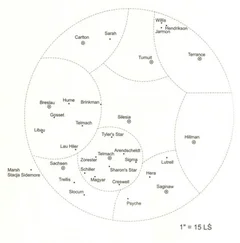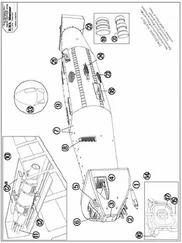David Weber - Ashes of Victory
Здесь есть возможность читать онлайн «David Weber - Ashes of Victory» весь текст электронной книги совершенно бесплатно (целиком полную версию без сокращений). В некоторых случаях можно слушать аудио, скачать через торрент в формате fb2 и присутствует краткое содержание. ISBN: , Издательство: Baen Publishing Enterprises, Жанр: Фантастика и фэнтези, на английском языке. Описание произведения, (предисловие) а так же отзывы посетителей доступны на портале библиотеки ЛибКат.
- Название:Ashes of Victory
- Автор:
- Издательство:Baen Publishing Enterprises
- Жанр:
- Год:неизвестен
- ISBN:0-671-31977-9
- Рейтинг книги:4 / 5. Голосов: 1
-
Избранное:Добавить в избранное
- Отзывы:
-
Ваша оценка:
- 80
- 1
- 2
- 3
- 4
- 5
Ashes of Victory: краткое содержание, описание и аннотация
Предлагаем к чтению аннотацию, описание, краткое содержание или предисловие (зависит от того, что написал сам автор книги «Ashes of Victory»). Если вы не нашли необходимую информацию о книге — напишите в комментариях, мы постараемся отыскать её.
Ashes of Victory — читать онлайн бесплатно полную книгу (весь текст) целиком
Ниже представлен текст книги, разбитый по страницам. Система сохранения места последней прочитанной страницы, позволяет с удобством читать онлайн бесплатно книгу «Ashes of Victory», без необходимости каждый раз заново искать на чём Вы остановились. Поставьте закладку, и сможете в любой момент перейти на страницу, на которой закончили чтение.
Интервал:
Закладка:
"I take it," Honor said very carefully, "that your research didn't indicate that we were one of those 'less successful efforts'?"
"Oh, heavens, no! In fact, the Meyerdahl Betas and the Wintons have quite a lot in common. I don't have as complete a degree of access to the Winton records, of course, but even from the incomplete data in the public files, it's obvious that whoever designed the Winton modification for Roger Winton's parents was remarkably successful. As was the team that put together the Meyerdahl Beta package. I'd like to say they succeeded because they were so good at their jobs, but I rather doubt that was the case, particularly in light of their relatively primitive understanding of just what they were tinkering with. I think that, as we geneticists like to put it when discussing the vast evolutionary sweep of upward human development, they lucked out.
"The really unsuccessful efforts, on the other hand, tended to show very high levels of aggressiveness, like the 'super soldiers' on Old Earth, and weed themselves out of the genotype. As a matter of fact, that aggressiveness was the most common nasty side effect of intelligence modification projects. Some of the recipients verged uncomfortably closely on sociopathic personalities, without the sort of moral governors people need in a healthy society. And when you coupled that with an awareness that they were designed to be (and usually were) quite a lot 'smarter,' at least in certain, specific ways, than the normals around them, they started acting like a pride of hexapumas quarreling over who should boss all those inferior normals about until they got around to picking out lunch."
She shrugged and ran the fingers of both hands through her hair, combing the long strands the sea breeze had begun to whip back from her face.
"Then too, a lot of the IQ enhancements, in particular, simply tended to fade into the general background of the unmodified without showing any special advantages," she went on. "As I said, it usually worked out that the designers wound up enhancing one aspect of intelligence at the expense of one or more others, and what happened most often was that those who succeeded simply learned to use their enhanced abilities to compensate for the areas in which they'd taken a loss in ability.
"In the case of the Meyerdahl Betas, however, the effort actually worked, by and large. One thing you should remember, Honor, is that evolution always wins in the end, but it does it by conserving the designs that happen to be able to survive, not by going out and deliberately creating leaps forward. In fact, I've always disliked using the word 'forward' in terms of evolution at all. We assign an arbitrary valuation to the changes we consider positive and call those 'leaps forward,' but nature doesn't care about that, except in the statistical sense that more individuals with Mutation A survive than those with Mutation B or C. In many circumstances, however, the enhanced aggressiveness we see as a destructive side effect could be a positive survival trait. In a high-tech society, with high-tech weaponry, and surrounded by vast numbers of people who didn't share that aggressiveness—and who were seen as inferior by many who did—it had... negative implications, let us say. Under other circumstances, like a colony on a world with serious external threats against which it could be focused, it might mean the difference between survival and extinction.
"But even assuming we can all agree on what does constitute a natural 'leap forward,' those sorts of things happen only very occasionally. And we only know about the instances in which it happened and was conserved... which is approximately what happened in the case of your ancestors.
"I ran the Harrington intelligence test results against the base norms for their populations, both here and back on Meyerdahl, and the evidence is very clear. So far, I've found only three Harringtons who placed below the ninety-fifth percentile in general intelligence, and well over eighty-five percent of those I've been able to check placed in the ninety-nine-plus percentile. You tend to be very smart people, and if I hadn't wound up in the same select company according to my own test scores, I'd probably come all over inferior feeling or something of the sort."
"Sure you would," Honor said dryly, but her eye was still wide as she considered what her mother had just told her. And especially what she'd said about "undesirable levels of aggressiveness."
"At any rate," Allison went on briskly, "I've come to suspect that an unintended consequence of the IQ enhancer effort, both in the Harrington line and, quite possibly, in the Winton line, was something that makes you more attractive, as a group, to treecats. Given that we know the 'cats are empaths, I'm inclined to think that the confluence of the IQ package as a whole makes you... call it 'brighter' or 'tastier' to the 'cats. As if your 'emotional aura' were stronger or more pronounced. Possibly more stable." She shrugged. "I can't explain it any better than that, because I'm shooting blind. This is one area in which there is absolutely no existing body of data, to the best of my knowledge, and we don't even begin to have the tools to define or explain it. As a matter of fact, I feel like a woman trying to describe how a sound smells or a color feels.
"But I've also come to suspect, over the last few years, that the changes in your link to Nimitz are also linked to the Meyerdahl Beta mods. Whatever it is that seems to make all Harringtons so much tastier to the 'cats is even more pronounced in you, and it may be that there are some unique aspects to Nimitz's abilities, as well. At any rate, for the first time in human-'cat history, you two have actually managed to establish a genuine, two-way bond. Or I think it's for the first time. Even if it is the result of the Meyerdahl Beta mods, the possibility has to exist that at least one or two totally unmodified humans could have developed the same ability. But it definitely exists for you and Nimitz," she said softly, "and, God, but I envy you that."
The eyes hidden behind her sunglasses stared off into depths of time and space and imagination that only she could see, and then she shook herself.
"I envy you," she repeated more naturally, "but tell me this: am I also right in believing that your link to Nimitz hasn't been impaired by whatever keeps him from making Samantha 'hear' him?"
"I think you are," Honor said cautiously.
"And is it only emotions you feel?" Allison asked intently. "What I mean is, can you two communicate more than feelings or broad impressions?"
"Yes, we can," Honor said quietly. "Whatever's happening, it's still in a state of change, and we seem to get bigger changes in moments of extreme stress." She smiled without humor. "If stress is a factor in its development, I suppose it's not surprising that there've been changes over the last ten or twelve years!"
"I'd say that was probably at least a two or three thousand percent understatement," her mother said wryly.
"At least," Honor agreed. "But what I meant to say was that it started out as simple, raw emotion, but we seem to have learned how to use the emotion as a carrier for more complex things since. We're still a long, long way from the sort of things two 'cats can communicate to one another. I know we are, because I can just feel the edges of it when Nimitz and another 'cat 'talk' to each other. Or I could," she added bitterly, "before that bastard crippled him."
She paused and drew a deep breath, then squared her shoulders and returned resolutely to her mother's question.
"What we seem to be able to communicate most clearly, after emotions, are mental pictures. We're still working on that, and getting better at it. We can't seem to get actual words across the interface, but visual images are something else, and we've gotten a lot better at reading what the other one wanted to get across from the images."
Читать дальшеИнтервал:
Закладка:
Похожие книги на «Ashes of Victory»
Представляем Вашему вниманию похожие книги на «Ashes of Victory» списком для выбора. Мы отобрали схожую по названию и смыслу литературу в надежде предоставить читателям больше вариантов отыскать новые, интересные, ещё непрочитанные произведения.
Обсуждение, отзывы о книге «Ashes of Victory» и просто собственные мнения читателей. Оставьте ваши комментарии, напишите, что Вы думаете о произведении, его смысле или главных героях. Укажите что конкретно понравилось, а что нет, и почему Вы так считаете.












